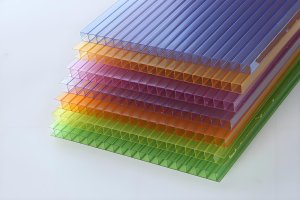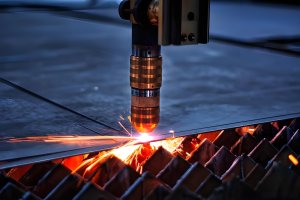Introduction: CNC Applications and the Importance of Material Strength
In high-stress tasks, such as those performed by Computer Numerical Control (CNC) machines, the strength of the material used plays a crucial role. Primarily utilized in industries including automotive, aerospace, and electronics, CNC applications carry out repetitive operations with immaculate precision, often under exceedingly high pressures and temperatures. Due to these punishing conditions, not just any material will suffice.
- The task requires materials possessing exceptional durability, resilience, and resistance against heat- factors critical for maintaining operational efficiency and longevity of machine parts.
- This is where Titanium and Inconel, two metals renowned for their sturdiness and robustness, come into play.
- These superalloys have been heavily favoured in advanced manufacturing sectors due to these properties – but when it comes down to selecting one for high-stress CNC applications, which can claim superiority?
The following discussion will delve into this pertinent question, shedding light on the comparative strengths and weaknesses of each metal within the realms of CNC machining.
Understanding Titanium
Titanium is a strong, low-density metal prized for its excellent mechanical properties such as high tensile strength and durability. It’s highly resistant to corrosion due to the oxide film on its surface and possesses a good heat resistance, making it an ideal choice for various CNC applications.
The advantages of using titanium in CNC processes are numerous. For instance, its high strength-to-weight ratio allows for sturdier end-products without adding unnecessary weight. This makes it beneficial for industries like aerospace or automotive where lightweight yet robust components are essential. Furthermore, its high corrosion resistance allows products made from titanium to exhibit better longevity even in extreme environmental conditions.
However, despite its advantageous properties, there are limitations in using titanium. Due to its toughness, machining titanium can be complex and time-consuming, potentially leading to increased costs in terms of machinery wear-and-tear and runtime. Also, its high melting point necessitates advanced cooling methods during the machining process which can further escalate production expenses.
Deciphering Inconel
In the realm of high-stress CNC applications, one material rises above many – Inconel. This nickel-chromium-based superalloy is known for its exceptional resistance to oxidation and corrosion, making it ideal for extreme environments such as chemical processing industries and aerospace applications.
Inconel’s benefits extend far beyond merely being rust-proof. The alloy demonstrates a remarkable retention of strength over a wide temperature range, enhancing endurance in high-stress operations. For instance, when used in jet engines or gas turbine blades, Inconel maintains firmness despite the intense heat and pressure variations. Moreover, its impressive ductile-to-brittle transition temperatures ensure stable performances even at cryogenic levels.
However, machining Inconel comes with certain challenges which cannot be ignored. Its substantial strength poses difficulties during shaping and cutting processes- often resulting in tool wear and damaging work surfaces. Also, incorrect heat treatment can lead to cracks, thereby compromising structural integrity. In summary, while Inconel displays superior attributes for high-stress applications, understanding its nuances call for careful consideration and proficient handling.
Strength and Durability of Titanium vs. Inconel
When comparing the strength and durability of titanium and Inconel, it’s important to consider their specific properties. Titanium offers excellent strength-to-density ratio, corrosion resistance, and lightweight yet strong characteristics. On the other hand, Inconel is known for its high-temperature strength, oxidation resistance, and excellent corrosion resistance. Understanding the specific requirements of high-stress CNC applications is crucial in determining which material is superior for the intended use.
Cost-Effectiveness Analysis: Titanium vs Inconel
In the world of high-stress CNC applications, understanding the cost versus performance ratio of different materials like titanium and Inconel is crucial. The relative cost-effectiveness can significantly impact a project’s total expenses.
Titanium has certain advantageous features such as an excellent strength-to-weight ratio and impressive resistance to heat and corrosion. However, these properties come with a higher price tag in comparison to other metals, impacting its cost-efficiency for broader scale or budget-limited projects.
On the other hand, Inconel might provide better value for money for several reasons. It is renowned for its exceptional tolerance to extreme temperatures and resistance to oxidation and corrosion. Although it may be more challenging to machine due to its toughness, this also translates into long-term durability reducing the need for regular replacements which could offset the initial investment over time.
- Titanium – Higher cost, excellent strength-to-weight ratio, superior thermo-resistance, good corrosion resistance.
- Inconel – Better overall value, excellent temperature tolerance, good corroding and oxidation resistance, durable with longer lifespan.
To summarize, both titanium and Inconel have their strengths and weaknesses, but considering cost and value factors, Inconel might offer a more cost-effective solution in specific high-stress CNC applications.
Durability and Maintenance Aspect of Titanium Vs Inconel in High-Stress CNC Applications
When comparing the durability, lifespan and maintenance features of both titanium-based and inconel components for high-stress CNC applications, several insights emerge. Firstly, titanium is celebrated for its remarkable resilience against corrosion. This makes it a reliable choice when considering longevity of CNC machine parts as they often need to handle abrasive materials. Furthermore, titanium has a high strength-to-weight ratio, making it highly durable under stress conditions. However, while these attributes imply low-maintenance operations, they also signify higher acquisition costs.
In contrast, inconel’s standout characteristic lies in retaining its tensile strength at elevated temperatures where many other metals succumb. Its exceptional thermal shock resistance protects the components from cracking due to drastic temperature changes during high-speed machining processes. Notably though, unlike titanium, working with inconel requires specialized tooling and machining techniques which, although ensuring superior component lifespan and unparalleled high-temperature performance, can drive up operational expenses thereby necessitating regular upkeep.
User Experiences & Testimonials
In several high-stress scenarios, industry professionals testified to the excellent performance of titanium. A notable example is in the aerospace sector where it withstood extreme conditions due to its high strength-to-weight ratio and remarkable corrosion resistance. Inconel also has impressive testimonials, especially within the automotive racing industry. It excels for uses in exhaust valves and turbochargers on account of its superior ability to maintain integrity under tremendous heat stress.
- Titanium: Aerospace engineers affirm that aircraft parts made from this material offer exceptional durability even when exposed to high-speed wind flow and rapid altitude change.
- Inconel: Motorsport technicians testify that engine components made of this alloy are adept at tolerating high-temperatures on the racetrack, ensuring vehicle reliability during strenuous races.
Cumulating thoughts of experts lean towards both materials being particularly suited to different applications based on their specific strength areas related to mechanical attributes. However, a common consensus suggests that choosing between titanium or inconel should essentially depend on the type, degree and nature of the stresses involved in the particular CNC application.
Conclusion
In assessing the suitability of either Titanium or Inconel for high-stress CNC applications, a few key factors have been considered. First, there is functionality under high stress and high temperatures where Inconel outshines with its superior resistance to heat and pressure. Second, both materials demonstrate excellent corrosion resilience but vary in terms of machinability; Titanium proved to be easier to work with while providing reliable longevity.
The inherent properties like strength-to-weight ratio also favored Titanium for the higher performance it offers without excessive weight addition. Meanwhile, Inconel showed superiority in thermal expansion coefficients that prioritize stability over temperature-variance. Ultimately, we can conclude that both materials render commendable performance under high-stress conditions. However, depending on specific CNC application requirements–whether they focus more on operating environment’s temperature or manufacturing feasibility–one material may outperform the other.
Other Articles You Might Enjoy
- Zirconium vs. Titanium: Evaluating CNC Machining for Critical Applications
Introduction: Zirconium vs. Titanium in CNC Machining In recent years, we've observed an increasing trend in the use of zirconium and titanium materials in the artful domain of CNC machining.…
- The Science of Selecting CNC Machining Materials for High-Temperature Applications
Introduction to CNC Machining CNC (Computer Numerical Control) machining stands as a cornerstone in modern manufacturing, enabling the precise and automated production of complex parts. Its significance is particularly pronounced…
- Inconel vs. Monel: Precision CNC Machining for High-Performance Alloys
Inconel vs. Monel: Understanding High-Performance Alloys Comprehension of high-performance alloys, such as Inconel and Monel, is essential in determining their application in precision CNC machining. Inconel belongs to the family…
- CNC Machining for the Space Industry: Comparing the Thermal Properties of Titanium and Inconel
CNC Machining in the Space Industry Computer Numerical Control (CNC) machining, an automated manufacturing process that utilizes computer-aided design (CAD) and programming to control machinery, is widely used in the…
- The Efficiency of CNC Machining: Titanium vs. Steel for High-Performance Components
Introduction to CNC Machining and Material Selection Computer Numerical Control (CNC) machining revolutionizes the manufacturing space by enabling highly accurate, repeatable, and complex component production. In high-performance industries like aerospace…
- CNC Machining for Energy Sector: Inconel vs. Titanium Alloys Performance Comparison
CNC Machining in Energy Sector: Inconel vs. Titanium Alloys The advent of CNC (Computer Numerically Controlled) machining has revolutionized the manufacturing industry, particularly within the energy sector. Known for its…






